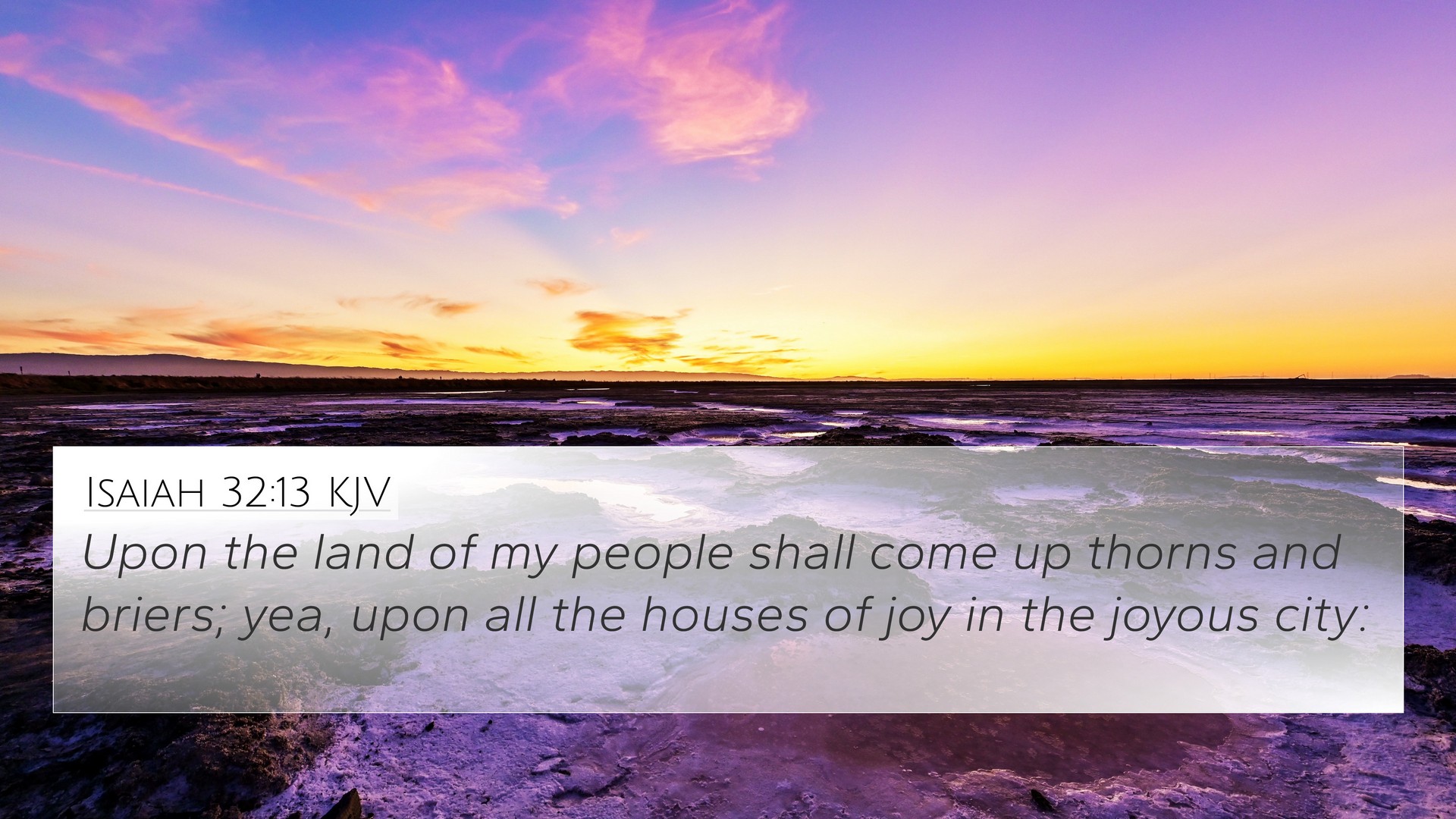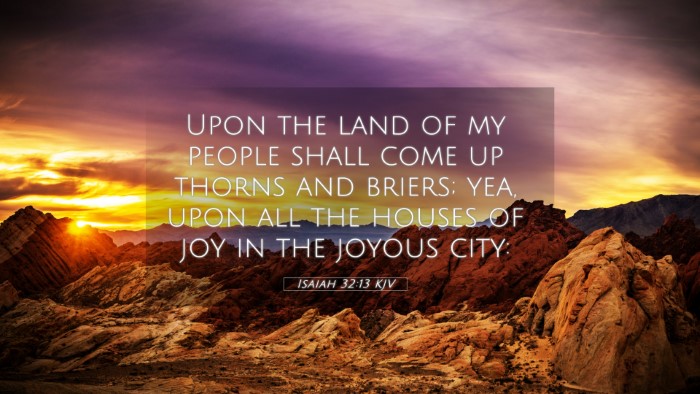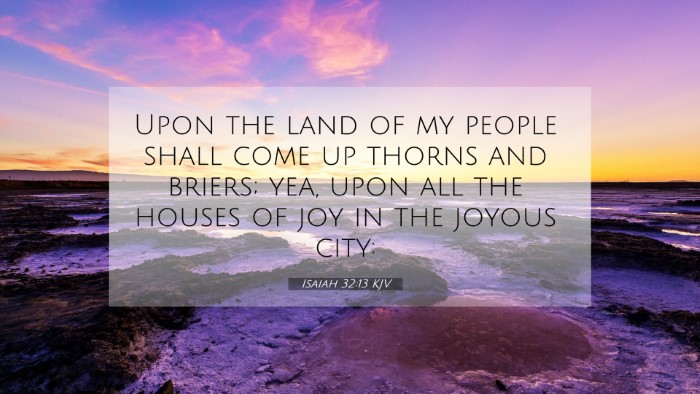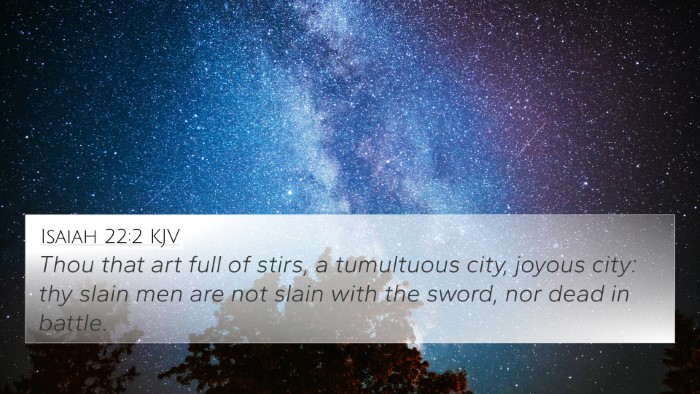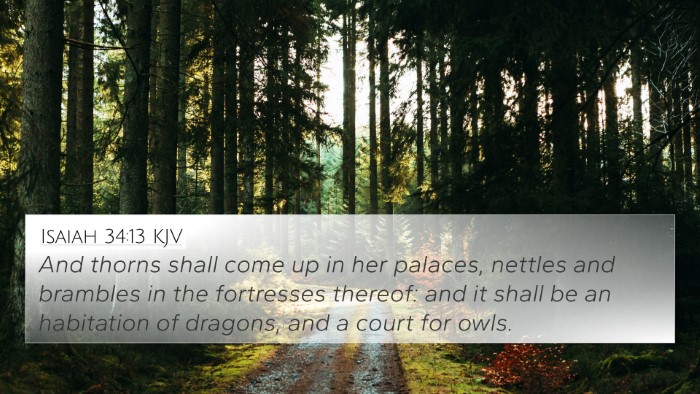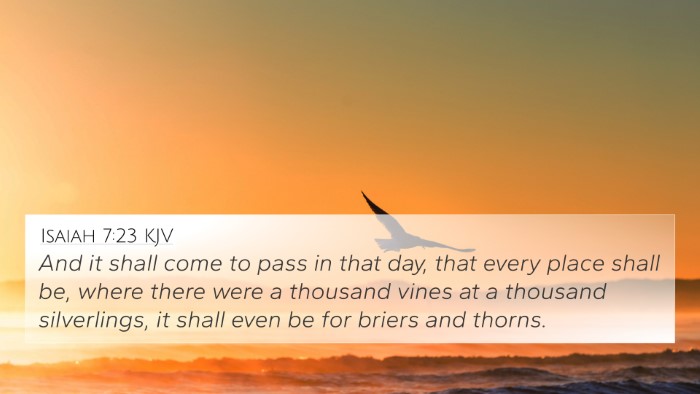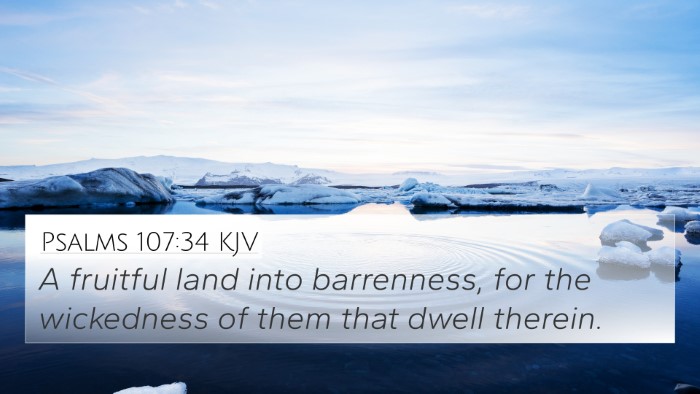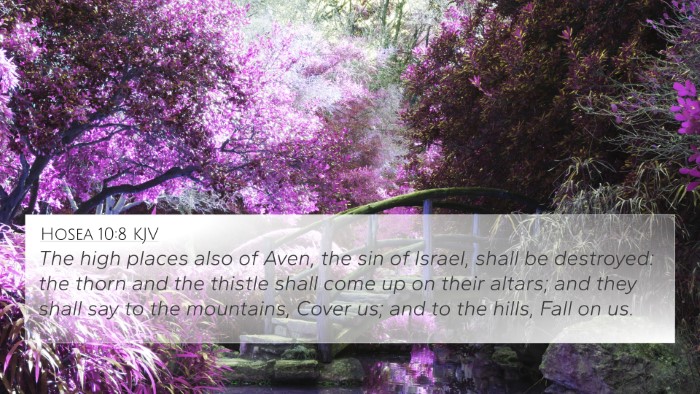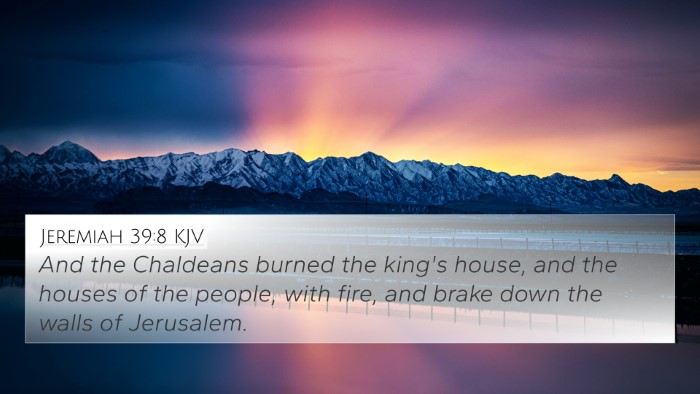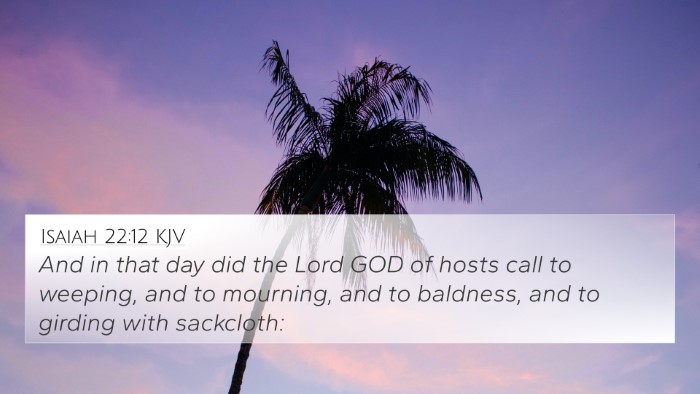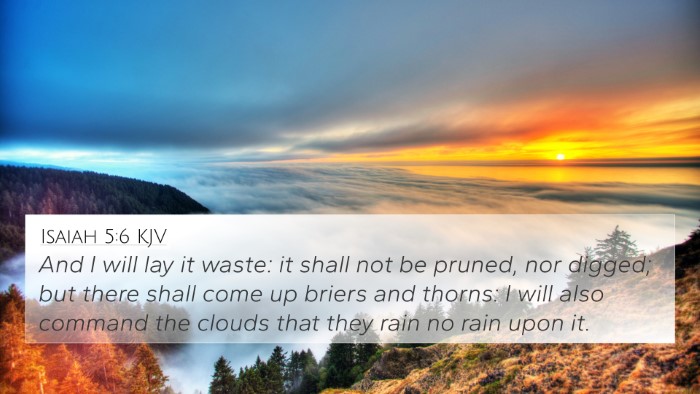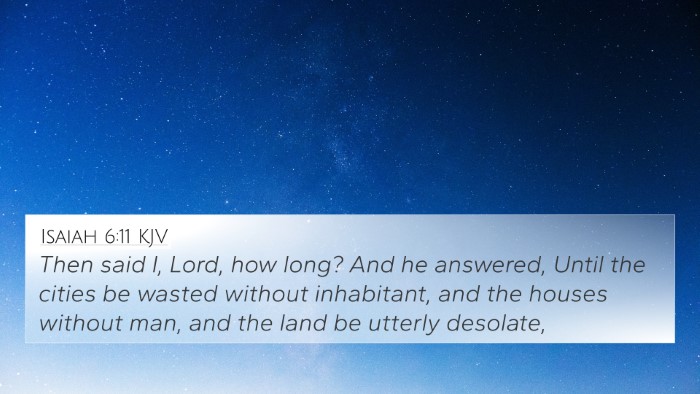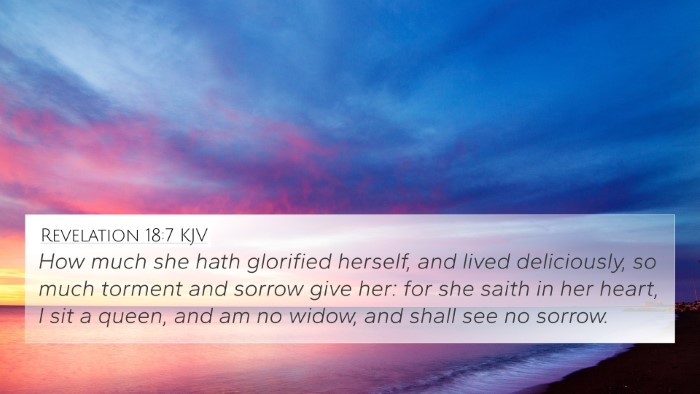Understanding Isaiah 32:13
Verse: "Upon the land of my people shall come up thorns and briers; yea, upon all the houses of joy in the joyous city."
Summary of the Verse
This verse from Isaiah depicts a somber picture of impending desolation and judgment upon the land. The mention of “thorns and briers” suggests that the blessings and prosperity once enjoyed will be replaced by barrenness, symbolizing divine displeasure and the consequences of sin.
Commentary Insights
Various public domain commentators provide additional insights that help illuminate the meaning of this verse:
-
Matthew Henry:
Henry emphasizes the transition from joy and prosperity to despair due to the people's iniquities. The "houses of joy" symbolize the once-happy state that will soon be overshadowed by judgment.
-
Albert Barnes:
Barnes explains that the thorns and briers represent the consequences of sin and the destruction that follows. He relates this imagery to the natural world being affected by human wrongdoing.
-
Adam Clarke:
Clarke draws connections between this verse and the covenantal promises made to the people of Israel, highlighting that their unfaithfulness brings about this judgment that leads to loss and sorrow.
Thematic Connections
Isaiah 32:13 serves as a powerful reminder of the consequences of straying from God's commandments. It parallels themes found throughout Scripture regarding neglecting God's will:
- Judgment and Restoration: Jeremiah 4:3-4 discusses the need for the people to break their fallow ground and not sow among thorns.
- Consequences of Sin: Galatians 6:7 emphasizes that whatever a person sows, that also they will reap, echoing the themes in Isaiah.
- Desolation in Prosperity: Amos 5:11-12 warns that the failure to uphold justice will lead to poverty and desolation.
Cross-References
Below are some Bible cross-references that help illustrate the broader context and connections concerning Isaiah 32:13:
- Isaiah 5:6 - "I will make it a waste; it shall not be pruned or hoed." This speaks of judgment leading to desolation.
- Matthew 7:19 - "Every tree that does not bear good fruit is cut down and thrown into the fire." This illustrates the fate of unproductive lives.
- Hosea 10:8 - The relevant consequences outlined in this passage highlight similar themes of desolation.
- Micah 7:1 - "Woe is me! For I am as when they have gathered the summer fruits." This draws a connection between scarcity and loss.
- Romans 2:6-8 - Where Paul describes God’s judgment based on one's actions, relating to the themes of Isaiah 32:13.
- Luke 13:7 - The parable of the barren fig tree represents judgment for unfruitfulness, similar to the thorns mentioned in Isaiah.
- James 3:18 - "And the harvest of righteousness is sown in peace by those who make peace." This reflects the contrast between peace and the consequences of disobedience.
Concluding Thoughts
This verse captures the inevitable consequences of straying from God's ways. It serves as a somber reminder for believers to remain steadfast in faith and obedience. The comprehensive analysis of Isaiah 32:13 through public domain commentaries not only elucidates its immediate context but also draws parallels to various biblical texts that reinforce the importance of righteousness and the repercussions of sin.
Further Study
For those interested in deepening their understanding of Isaiah 32:13 and its connections, utilizing bible concordance tools and engaging in bible cross-reference study can be beneficial. Seek out bible reference resources that support successful cross-referencing methods to uncover more thematic connections and insights.
